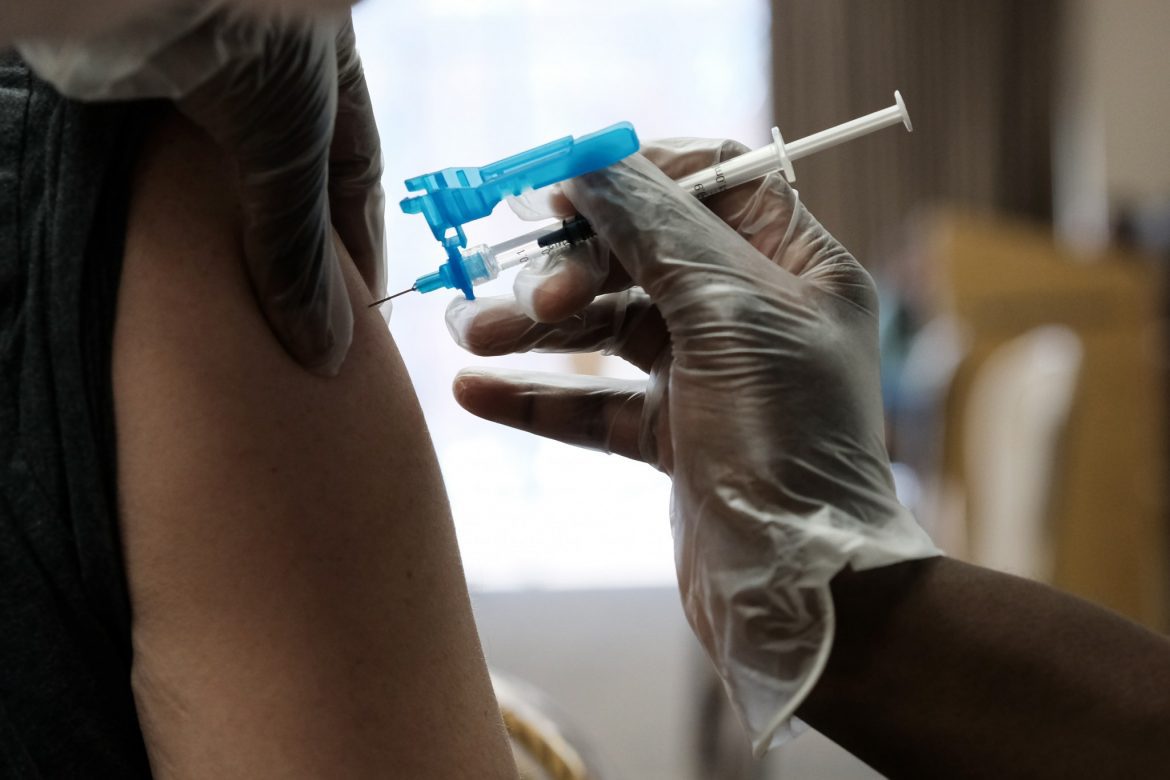The Arkansas Department of Health recently opened phase 1C of the COVID-19 vaccination plan, which allows many college students to be vaccinated.
Arkansas Governor Asa Hutchinson announced the phase opening on March 16 and said that it includes the vaccination of anyone in the state who lives in student housing. Dr. Julie Hixson-Wallace, the vice president for accreditation and institutional effectiveness and associate provost, has helped organize Harding’s vaccine clinics, and in an email to the student body, said the University plans to hold clinics for students on campus on March 31 and April 1.
Since the Pfizer vaccine was introduced on Dec. 14, 2020, and the Moderna vaccine on Dec. 21, the country has faced a long journey of distributing the vaccines and determining who is eligible to receive them. Harding held the first on-campus vaccine clinic on Jan. 18, administering Pfizer shots to employees who were 65 or older. Another was held on Feb. 20 and 21 to administer the second dose of the vaccine to that group. The clinics have been run mainly by faculty, staff and students from the College of Pharmacy, Carr College of Nursing and the College of Allied Health.
“[The clinics] have been additional work for sure, but very rewarding,” Dr. Jeanie Smith, assistant dean for pharmacy student affairs and admissions, said. “We’ve had faculty and students from almost every center for health science programs on campus pitch in and volunteer, so it’s been a great collaborative interprofessional experience.”
According to Hixson-Wallace, as of March 18, 549 people have received at least one dose of a Pfizer or Moderna vaccine through Harding coordinated clinics, and 1,055 total doses of the Pfizer vaccine have been administered on campus. Medic Sav-On Drugs administered 226 doses of the Pfizer vaccine in cooperation with the Carr College of Nursing, and 236 doses of the Moderna vaccine were administered by Stotts Drug Co. in cooperation with the College of Pharmacy.
With phase 1C opening, vaccine clinics have taken place in Searcy with college students in mind. Unity Health Hospital held clinics at Fellowship Bible Church on March 17, 18 and 23 that were targeted toward the Harding student body. According to Dr. Roddy Lochala, the chief medical officer at Unity Health, about 4,300 doses of the vaccine were administered through these clinics. Senior Lucas Lawrence went to the clinic hosted at Fellowship to get his first dose of the Pfizer vaccine.
“I wanted to get vaccinated to protect myself and to ultimately protect others,” Lawrence said. “I didn’t experience any negative side effects from the shot besides being a little sore, which is to be expected with any shot. [At the clinic], the staff was very nice and helpful. When I went, it was busy, but the wait time wasn’t bad.”
In a series of polls conducted via the Student Publications Instagram account, 60% of respondents said that they had been vaccinated. Of those, 76% said they received the Pfizer vaccine, while 24% said they received the Moderna vaccine. Seventeen percent said they were vaccinated on campus, versus 83% who reported being vaccinated off campus. Of those who have not yet been vaccinated, 61% said they plan to eventually do so.
Though phase 1C opened vaccine eligibility to most college students living on campus, a few have already been fully vaccinated. Under phase 1A, students in the health sciences programs were able to receive the vaccine due to their close work with Unity Health, as well as other medical clinics in the region. Junior nursing major Jared Bresko got his first dose of the Pfizer vaccine at the end of January and his second in mid-February through a clinic conducted by the Carr College of Nursing.
“COVID-19 has deeply impacted the clinical experience for nursing majors, as many hospitals closed their doors last year to students,” Bresko said. “Due to the vaccine … we now feel much more comfortable and confident when caring for our patients.”
Regarding the potential vaccine clinics to be held later in the semester for students living in on-campus housing, Smith said the most helpful thing students can do is pay attention to their Harding emails.
“Whenever we get to the point where we’ll be able to plan more details for a clinic, we will need to know if there’s going to be 20 students or 200 students [who] show up so we can plan appropriately,” Smith said. “I want to encourage students to keep an eye on their email and to respond in a timely manner so that we can plan for things like vaccine supply.”
